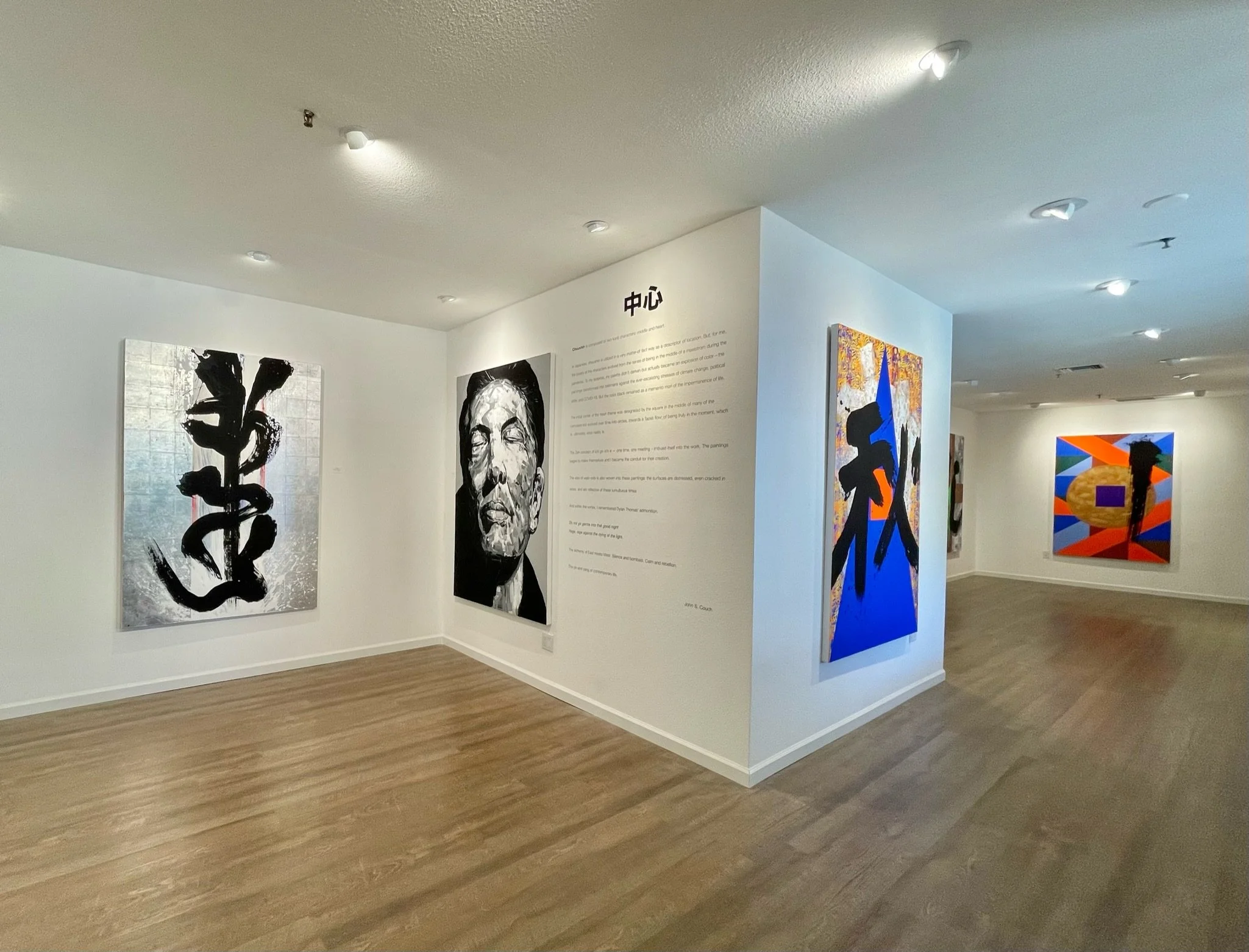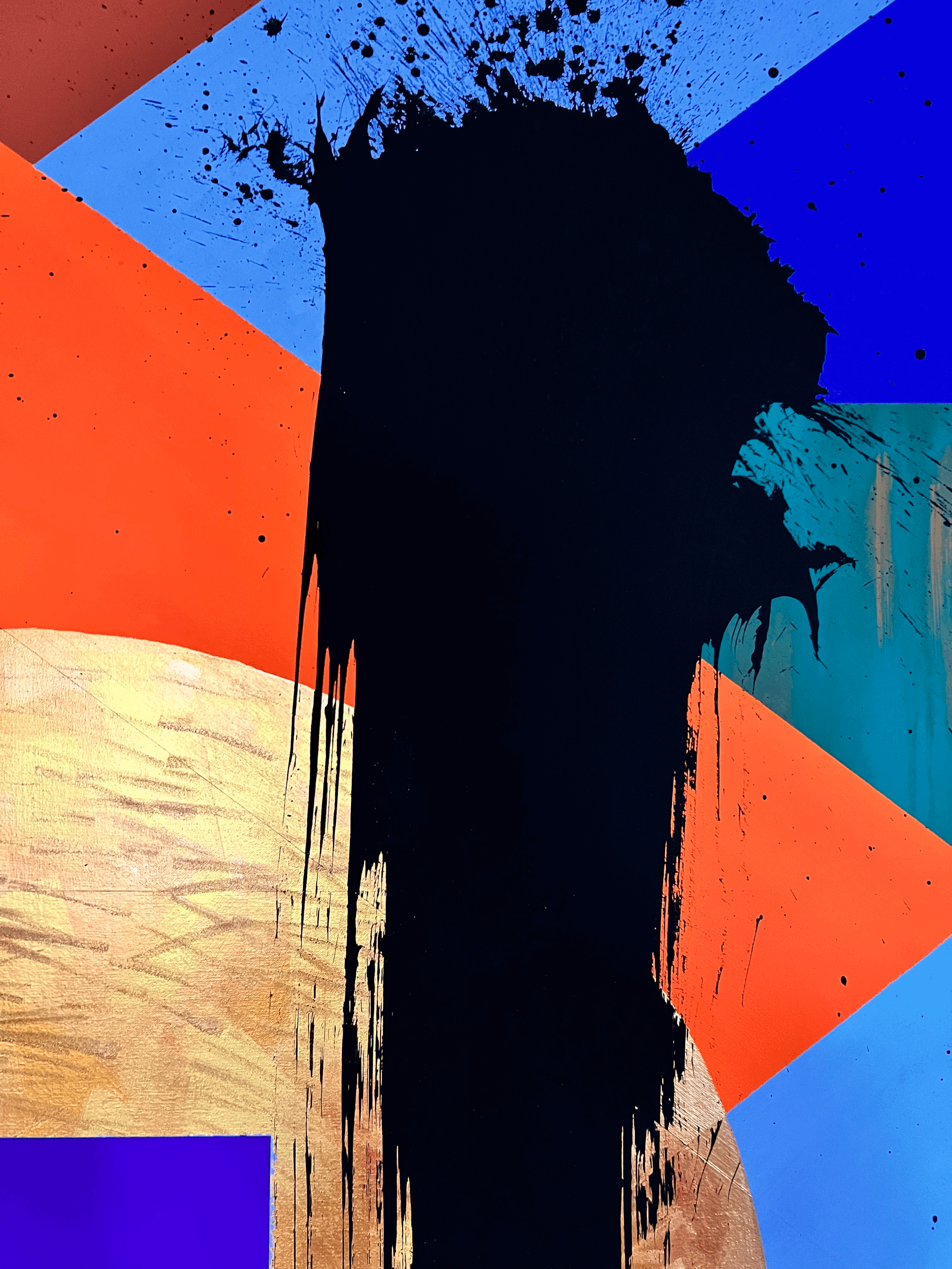“Good morning, you won the lottery.” This is what my wife and I jokingly say to each other every morning. It’s an acknowledgment of gratitude, of the unbelievable unlikeliness of being here, now, against astronomical odds.
Read MoreMaking, creating is the essence of life – we literally move and reproduce. We are constantly creating, whether we are conscious of it or not.
I’ve known for some time that focus destroys fear. Chuushin was the result of my focus on destroying fear.
Read MoreIn my book, The Art of Creative Rebellion, I write about doing something beyond your day job – engaging with a pursuit that is strictly for yourself, not for monetary gain or fame. It’s an uncomfortable place for many of us to be as we feel that any time that is not spent “productively,” that is either in the pursuit of money or given to others (family or friends,) is somehow indulgent. Even selfish. But in reality, we can only experience who we are in these moments of play, when we dance, write, act, paint, draw or go for an aimless walk.
Read MoreMy last day as VP, Product Design at Hulu was Monday, February 8th. I worked at that remarkable company for five years and one month. It’s a strange, exciting and liberating feeling to move on to new things. It’s scary and filled with unseen potential.
Read MoreThere is the basic notion that if I do something over and over, with enough diligence that I will gain mastery in a particular discipline or practice. This concept was popularized by the famous “10,000-hour rule” that Malcolm Gladwell wrote about in his excellent book Outliers. It has often been misinterpreted that one will become an expert in anything if they put in 10,000 hours of work. In reality, he was referring to “outliers” – people of such talent that they became phenomenal through putting in the hours. In other words, even if I put in 10,000 hours of effort as a child, I’d never become Michael Jordan or Kobe Bryant because I lack the intrinsic talent as well as physical capabilities. I would perhaps become really good but not an outlier.
Read MoreLast Sunday morning I participated in a webinar that Tea Leaves presented, a conversation between Albert Shum (CVP, Design at Microsoft) and myself, entitled “Creative Rituals.” The wonderful Lana Sutherland, CEO of Tea Leaves moderated.
The premise was:
“As we collectively experience a global pandemic, our systems, structures, and social mores are being put to the test. In this time of shelter and reflection, it has become imperative that we cannot simply go back to the way things were. What, then, are the new norms?”
We covered a lot of ground ranging from how to maintain creative health during these times to working virtually during a pandemic as well as personal stories of cultural perspective and diversity.
Read MoreThe weird thing about these times is that we feel that we simultaneously have too much time on our hands and yet have no time at all. Time is tricky. Because when we finally get through all of the things we have to do, working, taking care of the kids, buying groceries, doing the dishes, fixing the car, fixing whatever is wrong with the house, trying to work out, spending time with family and (socially-distanced) friends; we are exhausted. Oh yeah, and then there is the global pandemic. And the current political and social turmoil...
Read MoreThe term Renaissance is derived from French renaissance, from re- ‘back, again’ and naissance ‘birth’ (from Latin nascentia, from nasci ‘be born’). The Renaissance is, of course, the period of transition in Europe from the Middle Ages (5th to 15th centuries) to Modernity. The Age of Reason and Enlightenment ran from about the 17th and 18th centuries. What these periods had in common was a movement away from a controlled information society in which one did not question authority or religious doctrine towards a period of inquiry and thinking.
Read MoreAfter a long day of Zoom and work, I spend my evenings painting large canvases as a practice that centers me while also being able to throw me completely into moments of uncertainty and anxiety. There’s no “command-Z” for analog work –– if you screw up, you either have to incorporate it into the work or you start over.
Read MoreI had an engrossing and philosophical discussion with the founders of Tea Leaves, a really beautiful tea company that abides from the principles of “Education, Enlightenment and Enchantment.” Their company has purpose beyond selling its high-quality teas that include thinking about the impact of design on the world, from biodiversity to climate change. I was introduced to them via Albert Shum, CVP of Design at Microsoft.
During our discussion, we talked about the role of ceremonies in design thinking. Let me explain what I mean by “ceremonies.” I’ll use Japanese examples but ceremonies appear in all cultures.
Simply put, in my definition:
Ceremonies are rituals that allow you to transition from the worldly to the profound.
Read MoreThere is every reason in the world not to do something creative and for yourself: you have to do the day job, you have to make money, you have to take care of the kids, you have to spend time with your spouse. All good and worthwhile things. And there will be more reasons not to allow yourself time to create.
Read MoreLet me tell you a secret: I’m terrible at taking my own advice. I’m usually in motion and rarely slow down. As time goes by, I feel an urgency to get things done. This has especially been aggravated by the times we are in. The way I’ve reacted to the on-going pandemic (and this week’s news that there’s already a second spike), the protests, the political divide in our country, and the early rise of fires in California, is to instinctively work harder on everything from my day job to my personal projects. Everything feels like a giant memento mori, reminding me that everything can, and often does, change in a moment.
Read MoreWe often spend our days, and our lives, focused on “adult” issues that have been deemed by society to be proper engagements. There’s an underlying calculus to what we do: we work because we need money (obviously); we spend quality time with our families (well, we should); we work out to keep our bodies in shape (again, we should); we attend to the spiritual ceremonies that help us deal with the big questions. All these efforts have some kind of outcome that is quantifiable and we feel good about them. Very utilitarian. And all this is fine and good and we should be providers for ourselves and our loved ones. We should be strong community-focused, citizens who provide value, monetarily as well as in civil society.
Read MoreSo here’s my advice: Whatever you choose to do, do it without concern for how it compares or will be received by the unseen masses. You know deep inside what is Quality for you. You know if something is any good or works. You have your own standards. And if the work isn’t up to your standards, don’t fret. Just keep going. Do another painting, another chapter, another song. No one has to read your first draft but you.
Think and plan. But then true learning comes from the doing. The messy process of lurching towards truth.
Read More












